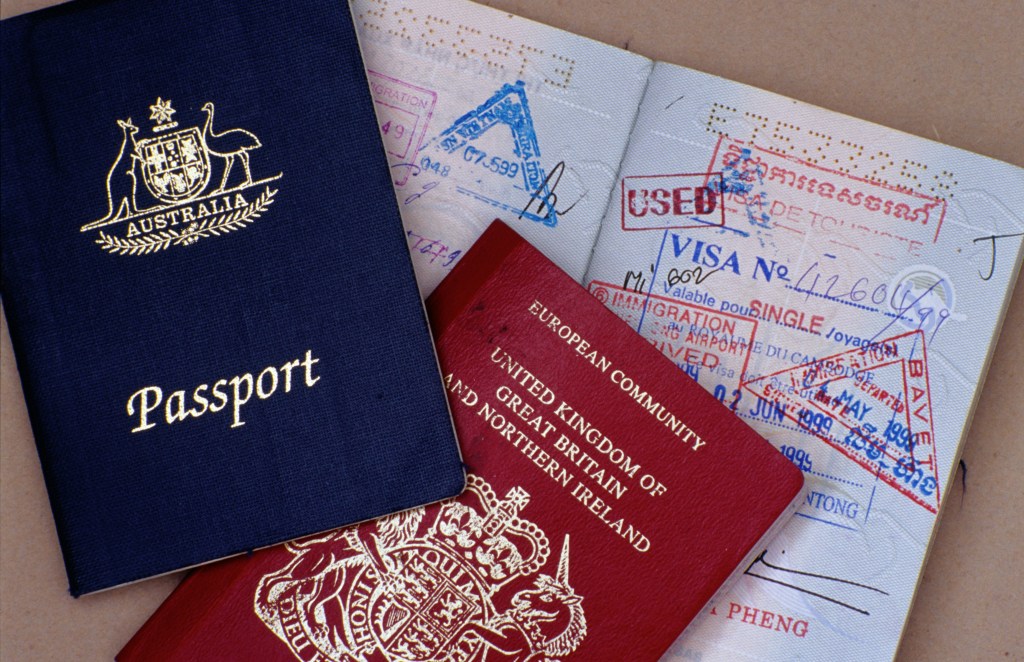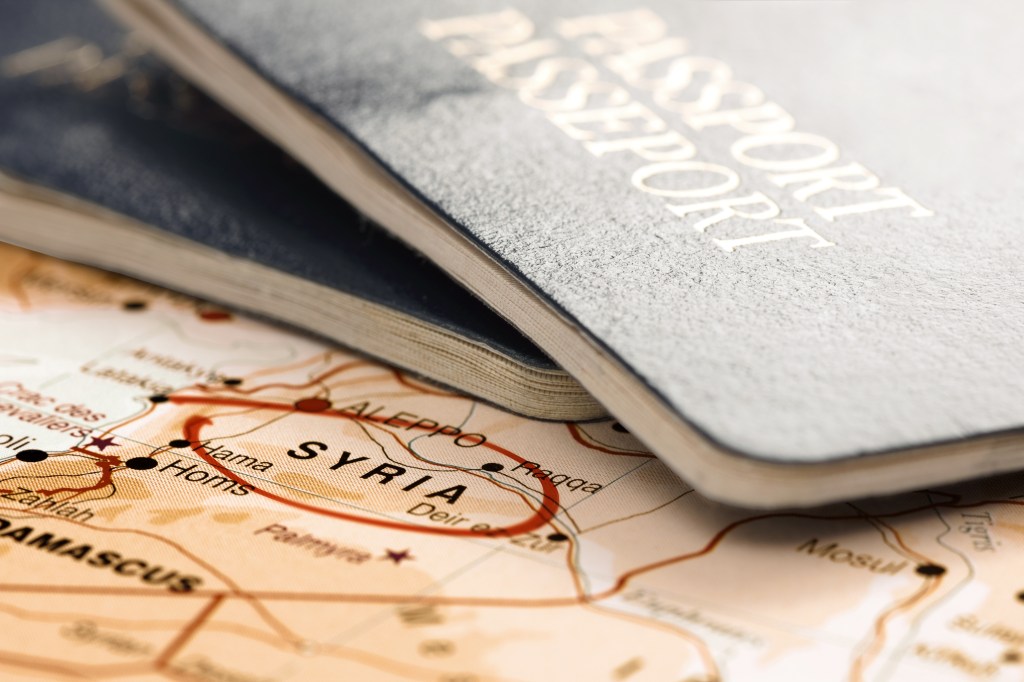While the Henley Passport Index has long been a reference for the status of global citizenships, the Nomad Index reshuffles the world’s most powerful passports with startling results.

Ranking almost anything is always subjective, but when it’s something on the scope and scale of the world’s most powerful passports, it’s hard to invest fully in only one source. Such is the case here, where consulting firm Nomad Capitalist creates its annual Nomad Passport Index (NPI) of the world’s 199 citizenships based on five different factors looking through the eyes of global investors and entrepreneurs.
How the world’s most powerful passports are ranked
The 2025 NPI ranking is its ninth. The five factors it employs that define its methodology use aggregated data from nearly 20 sources and are weighted slightly differently:
Visa-free travel: 50%
Using government data from 199 passport-issuing countries and territories, combined with real-time intelligence and proprietary research. This factor includes a MobilityScore measuring ease of travel, which focuses on visa-free travel, visa on arrival, and eTA and eVisa (if issued within three days).
Taxation of citizens: 20%
Based on data from Nomad Capitalist’s network of tax vendors, news sources and tax authorities. They assigned the lowest score of 10 to countries that tax citizens no matter where they live (e.g. U.S.); scored 20 or 30 to countries that allow citizens to relocate to avoid tax (e.g. Finland); scored 40 for those that don’t tax foreign incomes of resident citizens (e.g. Panama); and scored 50 for countries with zero tax (e.g. Vanuatu).
Global perception: 10%
Based on the World Happiness Report, the Human Development Index and subjective factors from the Nomad Capitalist network’s experiences to determine how each country’s citizens are received and recognized.
Dual citizenship: 10%
Using embassy data and their network experiences to assess the ability to hold dual citizenship ranging from a score of 10 for strictly forbidden (e.g. China) to a score of 50 for freely allowed (e.g. Canada).
Personal freedom: 10%
Based on data and news reports about mandatory military service, government surveillance, press freedom and other factors to determine the personal freedom of citizens, travellers and expats, with scores ranging from 10 for least freedom to 50 for most.
While some of these factors are undoubtedly interpretive and based on experience as much as data, this approach, claims the report, takes it beyond rankings that focus solely on visa-free travel: “While most indices – and most people – think of a passport only in terms of travel privileges, we understand that citizens of different countries deal with very different requirements to pay tax, live freely, comply with regulations and avoid scrutiny when travelling.

“In that regard, the number of countries a passport holder may visit does not tell the whole story. The Nomad Passport Index speaks to those seeking personal freedom and financial prosperity in a changing world, offering a deeper analysis of the true value of each passport.”
The world’s five most powerful passports
While the 2025 Henley Index points to Singapore as 2025’s most powerful passport, the NPI instead places Ireland firmly atop the global ranking. Looking back over previous NPI rankings it’s clear to see Ireland has been in a long rivalry with Switzerland for the top spot.
These two neutral nations have often dominated the rankings with consistent top marks for perception, dual citizenship and freedom while also ranking very highly for visa-free travel and taxation. This year a slight boost in Ireland’s mobility score coupled with a slight dip in Switzerland’s saw them swap places from their 2024 standings.
Ireland has certain unique advantages that also add to its appeal. Entrepreneur-friendly tax policies, ease of travel, and fast-track citizenship options are great, but the right to live and work across the EU as well as the UK places it in a truly unique position post Brexit.
Occupying second spot alongside Switzerland is Greece, which has leapt four places from last year’s ranking. The NPI attributes this to its “rising prominence in EU migration, investment and tax discussions, along with the expansion and streamlining of its tax incentive programs [introduced in late 2024],” that have, “significantly enhanced its appeal among global citizens over the last 12 months.”
Greece’s jump up the rankings has bumped Portugal down to fourth, even though this sun-drenched slice of Iberia has actually improved its overall score. Beyond its glorious weather, Portugal remains a global favourite with visa-free access to destinations like South Africa and one of Europe’s most expat-friendly tax regimes. As the report states, “For many, it’s still the EU’s ultimate lifestyle passport.”

Taking the fifth spot is Malta, racing up from 14th place last year. This is down to a big jump in its tax score, the result of renewed interest in its non-dom tax regime. This aided by English being its official language, great international connections and the unarguable appeal of the Mediterranean lifestyle make it a smart European base without the added tax burden.
Rounding out the top five alongside Malta is Italy, climbing thanks to the government’s decision to expand the flat tax regime and widen access for high net worth individuals (HNWIs) and retirees looking for simpler tax rules. And it would be remiss to overlook Italy’s many, many other qualities, from relatively low cost of living compared to much of Europe to its deep cultural well, quality of life and, of course, the food!
Other major players in the world passport rankings
Further down the list we come to the United Arab Emirates in 10th place, a significant drop from its position at the top of the list just two years previous. While its score is unchanged over that time, it hasn’t improved like myriad other countries around it. In particular the NPI notes that “the decline stems primarily from recently introduced taxes, signalling a clear shift in attractiveness to global entrepreneurs and raising questions about the UAE’s future appeal.”
Elsewhere, Germany has dropped out of the top ten to 13th yet remains eight places clear of the U.K. in 21st. The U.S. meanwhile languishes in a lowly 45th position alongside San Marino, hampered by strict taxation, reduced mobility and a significant drop in personal freedoms and global perception.
The world’s least powerful passports
One area where the NPI does align with the Henley Index is at the bottom of the rankings, where once again we find Afghanistan. With lowest available scores for perception, freedom, dual citizenship and taxation, its citizens enjoy far fewer freedoms than almost any other passport holder. Indeed, only Syria, five places above it in the list, has a lower travel score.

Said Nomad Capitalist research associate Javier Correa, “While there were many winners and some losers, the key takeaway from our new research is that, in today’s turbulent times, holding multiple citizenships is no longer a luxury; it is a vital strategy for navigating the modern world. This is the age of global mobility, and the most successful global citizens need to go where they are treated best, with the most comprehensive, up-to-date research at their disposal.”
For a comprehensive list and look at the methodology behind this ranking of the world’s most powerful passports, read and download the 2025 Nomad Passport Index.
This article was originally published on forbes.com and all figures are in USD.


